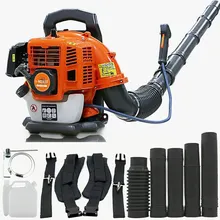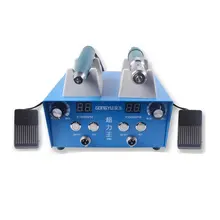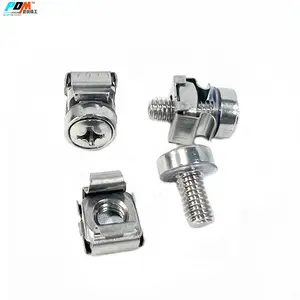Introduction to Plastic Cage Nuts
Plastic cage nuts, a specialized type of fastener, are integral components in various assembly and construction tasks. These nuts are encased in a plastic 'cage', allowing them to be held in position even before the accompanying bolt is threaded. This unique design feature not only simplifies the installation process but also enhances the stability of the connection.
Types and Applications
The versatility of plastic cage nuts is evident in their wide range of sizes and applications. They are commonly employed in areas where metal fasteners are unsuitable, particularly in environments that require electrical insulation or corrosion resistance. Their applications span across industries, from securing electronic equipment racks to automotive assemblies, highlighting their adaptability to different environments and purposes.
Features and Materials
Plastic cage nuts are crafted from various polymers, each selected for its specific properties. For instance, some are made from nylon for its strength and resistance to wear and abrasion. Others may utilize polyethylene for its excellent chemical resistance. These materials ensure that the nuts can withstand different environmental conditions without compromising their functionality.
Advantages of Using Plastic Cage Nuts
The design of plastic cage nuts offers several advantages. Their ability to remain in place before bolt insertion is particularly beneficial in hard-to-reach areas or where multiple fastenings are required simultaneously. This feature not only speeds up the assembly process but also reduces the risk of dropped or misplaced components. Additionally, the plastic material provides a level of flexibility, allowing the nut to expand slightly and grip the bolt more securely, which is advantageous in applications subject to vibration.
Selection Criteria
When selecting a plastic cage nut for a specific application, it is crucial to consider the environmental conditions it will be exposed to, such as temperature ranges and potential chemical exposure. The mechanical requirements, such as the type of load it will bear and the frequency of assembly and disassembly, should also guide the selection process to ensure optimal performance and longevity of the joint.
Conclusion
In conclusion, plastic cage nuts are a reliable and efficient choice for various fastening needs. Their unique combination of a secure grip, resistance to environmental factors, and ease of installation makes them a preferred option in many industrial applications. By understanding the specific requirements of their use, one can select the most appropriate type to ensure a successful and enduring assembly.











































 浙公网安备 33010002000092号
浙公网安备 33010002000092号 浙B2-20120091-4
浙B2-20120091-4